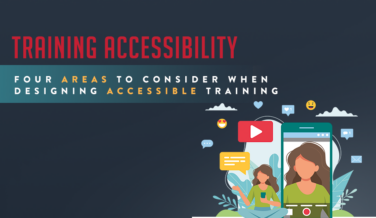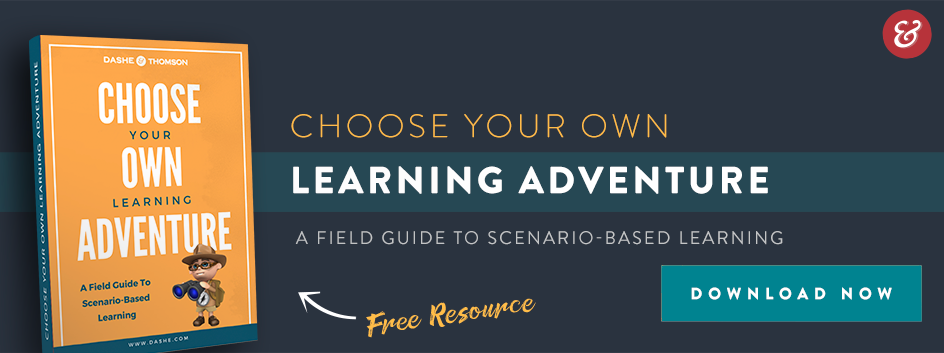Success Factors For Serious Games in L&D
What are Serious Games?
Serious games leverage the playful aspect of games to help learners easily and effectively grasp new content. For serious games to be effective they must enable the player to utilize their skills, while adapting to the new skills or information being taught throughout the game. Serious games are becoming a go-to training solution in the L&D industry because they hold the attention of the player, encourage and support engagement, and have higher levels of learner retention than basic training modules. There are a few things that must be included in serious games to make them effective. In this blog, we will go over those and how they factor into a successful serious game.
Success Factors
- Adaptivity: Many people associate adaptive learning with AI, but serious games change the way learning can be adaptive. AI is viewed to be interactive and interesting for their players, and without AI there is not a way to be adaptive while holding the interest of the player. Serious games change that interpretation by creating multiple choices to real life situations, which come with multiple consequences, forcing the player to stay engaged and adapt. Learners then must consider multiple outcomes, which allows them to be more prepared for the obstacles they will face in the real world.
- Realism: This factor is extremely important to incorporate in serious games. You will need to establish an emotional connection between the challenges in the game and the player. You will also need to make sure that in-game examples can easily translate to real-life situations the player will experience once they are in the field. This process may seem self-explanatory, but to create realism in a learning game you need to make sure that the scenarios are engaging and worthwhile to the player. You can build player interest by making the game time pressured, creating suspense and a sense of urgency, which in turn stimulates the player’s brain and encourages them to learn to succeed. You can also make it a team challenge, which will allow for team building and enhanced communication, but will also keep learners engaged with one another and allow for a real-life experience with others. There are many ways to make serious games interesting and educational; just keep them as real as possible throughout the entire game.
- Feedback: Allowing players to give their feedback at the end of the game can teach them cause-and-effect and express their accomplishments and concerns from the game. Hearing how they did, or what they struggled with, will provide you with the information you need to focus on their weaknesses and make them better. This will also solidify their accomplishment, knowing they finished their training, and they can then reflect on what they learned, which might surprise them since it was not a standard training program. This will show them that they can learn while having fun, and challenging themselves in ways they would not have thought of on their own. The feedback will be beneficial to the players, but to you as well. Seeing how the serious game translates to teaching the players and the retention of material for the player. This allows room for improvement even when you think it might not be needed.
- Interaction: Serious games need to have a strong interaction factor to be successful.. Players who do not feel the need to be highly involved, or the game doesn’t require them to be involved, will lose their interest and the effectiveness of the serious game will dramatically decline. Creating interaction in one of these games is simple: make sure players have choices, make sure they question their process, and utilize their skills. If they must use skills that they already have to win the game or move to the next level, it will empower them and encourage their strengths. If they are faced with multiple choices which lead to multiple outcomes and/or consequences, they will stay vigilant throughout the entire game, and will think consciously when working through problems. This drives interaction between the player and the serious game, increasing the effectiveness of the serious game.
Success Factors
Serious games are more than just fun engagement for the players, they are successful learning tools. Applying one or more serious games to your training program can take your organization to the next level. Including this training process makes learning enjoyable and different for your team, allowing them to feel like they are playing instead of sitting through another dull training. Applying these success factors will leave minimal room for failure, and instead will allow for a training experience your team has never had. Serious games can be a highly effective learning tool be as long as they are created and rolled out with all the above information taken into consideration
Continue reading

Dashe joins ttcInnovations
Learn More
Embracing the Future: Early Adopters of Generative AI for Learning
Learn More
Four Areas To Consider When Designing Accessible Training
Learn MoreCommitted to
finding solutions

